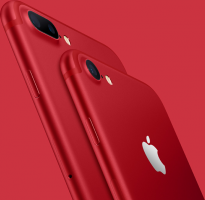
— If your car is rear-ended by a driver reading a newspaper, do you sue the publisher of the newspaper for causing the crash? Or do you file a lawsuit against a cosmetics company if the distracted driver who hit you was a woman putting on makeup?
According to a California lawsuit, a driver distracted by her cell phone wasn't responsible for a crash. Apple, the manufacturer of the iPhone she was using was really the cause of the rear-end collision, and according to the lawsuit, Apple’s iPhones cause "52,000 automobile accidents in California each year, and an average of 312 deaths."
The class-action lawsuit doesn't mention how many accidents and deaths are caused by phones made by other manufacturers, but does say the lives of 39,250,017 Californians are "placed in danger every single day as a result of Apple’s failure to install lock-out devices on their iPhones."
Plaintiff Julio Ceja says he was stopped at a stoplight when his vehicle was hit from the rear by a distracted driver using her iPhone. Ceja says he looked in the mirror and saw the driver behind him looking to the right and using her phone.
Ceja claims his back was injured and he "sustained an economic injury" as a result of the "unfair practice of [Apple] allowing consumers to use its products while driving, and not employing the lock-out device."
The lawsuit is complete with statistics about the dangers of using phones while driving, but instead of blaming the drivers using those phones, the plaintiff says the phone companies are responsible for the "massive carnage" on the roads.
Attorneys for the plaintiff blame Apple for the stupidity of drivers and says, "If texting and driving is a vessel of trouble, Apple is the captain of the ship."
The lawsuit claims "there is nothing consumers can do to protect themselves from the danger created by Apple’s iPhones," and the "public is at risk – and will remain at risk – until Apple is forced to employ the very technology it possesses to prevent drivers from using its iPhones while driving."
According to the lawsuit, Apple has had the ability to outfit its iPhones with a lock-out device that would disable the phone while in a moving vehicle and was granted a patent on the device in 2014.
Apple says its new operating system includes a feature called "Do Not Disturb While Driving," but the feature can be turned off and on at will. Apple says with the feature activated, text messages will be held while the car is in motion, unless certain contacts have been programmed into a phone. Messages from those contacts would still come through while the car is in motion.
The plaintiff says he wants Apple to stop selling iPhones throughout California unless they have a lock-out device that will automatically disable the phones in cars. In addition, Ceja wants the court to force Apple to update all iPhones in current use with the lock-out technology.
Apple filed a motion to dismiss the lawsuit by saying distracted drivers, not phones, cause car crashes and courts have said as much many times in the past.
The Apple iPhone distracted driving lawsuit was filed in the Superior Court of California County of Los Angeles - Julio Ceja v. Apple Inc.
The plaintiff is represented by MLG Automotive Law, APLC.
A similar lawsuit against Apple was "dismissed with prejudice" on August 17, 2017, after the judge ruled the driver who caused the crash was responsible, not the phone.
In Meador v. Apple, Inc., the plaintiffs claimed Apple caused the crash because it didn't automatically disable the phones when they were located in moving vehicles. However, the judge didn't see it that way.
"When a driver negligently operates her vehicle because she is engaging in compulsive or addictive behaviors such as eating food, drinking alcohol, or smoking tobacco, it is the driver's negligence in engaging in those activities that causes any resulting injuries, not the cook's, distiller's, or tobacconist's supposed negligence in making their products so enticing." - Judge Robert W. Schroeder III
The judge in Meador also sanely pointed out the obvious nature of the phone:
"The iPhone is an inanimate object. No matter how interesting the iPhone may be to its users, it cannot decide for a user how to allocate the user’s attention among the various stimuli that may be present in a car."




